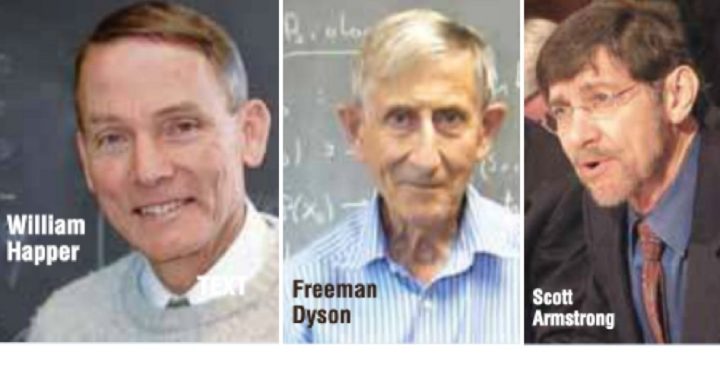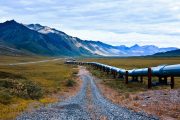
Many renowned scientists have criticized the computer models used by the global warming alarming industry, pointing out, for example, that the models omit many of the most important factors in our planet’s complex climate system: clouds, water vapor, volcanoes, ocean circulation, solar activity, and more. Thus, it is no surprise that the models, despite making use of the most sophisticated and expensive computers, have failed miserably and have universally, stupendously exaggerated warming trends. The remarks presented below represent only a small sampling of the critiques by noted experts. For more, see our companion article, “Computer Models vs. Climate Reality.”
“Most models predict that water vapor and clouds will greatly amplify the warming due to CO2 alone. There is little observational support for these predictions. Furthermore, the models do not explain relative large climate changes in past when there was negligible combustion of fossil fuels…. The existence of large climate variability in the past has long been an embarrassment to those who claim that all climate change is due to man and that man can control the climate. To the best of my knowledge, none of the climate models designed to predict future climate have been successful in explaining these past fluctuations of the climate. If you can’t model the past, where you know the answer pretty well, how can you model the future?”
— Dr. William Happer, Cyrus Fogg Brackett professor of physics at Princeton University, in a statement before the Select Committee on Energy Independence and Global Warming, U.S. House of Representatives, May 20, 2010
* * *
“In climate modeling, nearly everybody cheats a little. Although models of how the ocean and the atmosphere interact are meant to forecast the greenhouse warming of the next century, they can’t even get today’s climate right.”
— “Climate modeling’s fudge factor comes under fire,” by R.A Kerr in Science, September 9, 1994
* * *
“My first heresy says that all the fuss about global warming is grossly exaggerated. Here I am opposing the holy brotherhood of climate model experts and the crowd of deluded citizens who believe the numbers predicted by the computer models…. I have studied the climate models and I know what they can do. The models solve the equations of fluid dynamics, and they do a very good job of describing the fluid motions of the atmosphere and the oceans. They do a very poor job of describing the clouds, the dust, the chemistry and the biology of fields and farms and forests. They do not begin to describe the real world that we live in. The real world is muddy and messy and full of things that we do not yet understand. It is much easier for a scientist to sit in an air-conditioned building and run computer models, than to put on winter clothes and measure what is really happening outside in the swamps and the clouds. That is why the climate model experts end up believing their own models.”
— Dr. Freeman Dyson, noted author and professor emeritus of physics at the Institute for Advanced Study at Princeton University
* * *
“The biggest problem with models is the fact that they are made by humans who tend to shape or use their models in ways that mirror their own notion of what a desirable outcome would be.”
— Dr. John Firor, senior research associate and former director of the National Center for Atmospheric Research, Boulder, Colorado
* * *
“My own belief concerning anthropogenic climate change is that the models do not realistically simulate the climate system because there are many very important sub-grid scale processes that the models either replicate poorly or completely omit…. Furthermore, some scientists have manipulated the observed data to justify their model results. In doing so, they neither explain what they have modified in the observations, nor explain how they did it. They have resisted making their work transparent so that it can be replicated independently by other scientists. This is clearly contrary to how science should be done. Thus there is no rational justification for using climate model forecasts to determine public policy.”
— Dr. John Theon, former chief of the Climate Processes Research Program at NASA Headquarters and former chief of the Atmospheric Dynamics & Radiation Branch, in a letter to the Senate Environment & Public Works Committee, January 15, 2009
* * *
“In a nutshell, theoretical models cannot explain what we observe in the geological record…. There appears to be something fundamentally wrong with the way temperature and carbon are linked in climate models.”
— Dr. Gerald Dickens, oceanographer, author and professor of Earth science at Rice University, in Nature Geoscience, July 13, 2009
* * *
“Currently, the only forecasts are those based on the opinions of some scientists. Computer modeling was used to create scenarios (i.e., stories) to represent the scientists’ opinions about what might happen…. Since the publication of our paper, no one has provided evidence to refute our claim that there are no scientific forecasts to support global warming. We conducted an audit of the procedures described in the IPCC report and found that they clearly violated 72 scientific principles of forecasting.”
— Dr. J. Scott Armstrong, professor at the University of Pennsylvania, noted world expert on forecasting, and founder of the International Journal of Forecasting and the International Institute of Forecasters



